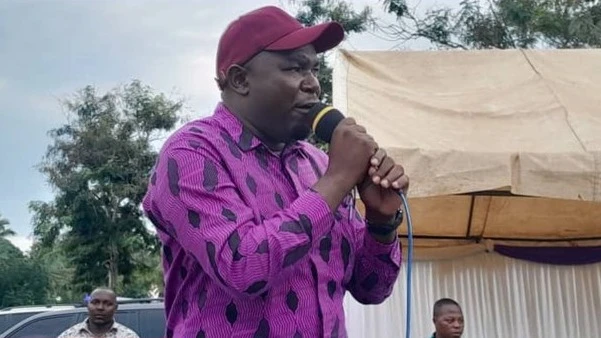The ACT-Wazalendo party has called for a government allocation of 50.2 billion shillings to expand the teaching workforce in primary and secondary schools, along with teacher training colleges.
This initiative aims to recruit a minimum of 5,000 instructors and lecturers to combat the teacher shortage in universities and colleges.
Also Read:ACT Wazalendo Party Endorses Zitto Kabwe for Presidency
The party urged government to allocate a sufficient budget and increase the subsidy amount for primary and secondary schools to 25,000 shillings per primary school student and 58,000 shillings per secondary school student, as well as oversee and monitor the implementation of the education policy for inspection and quality control of schools.
Additionally, the party has requested the government to bear the costs of tuition fees, practical training fees, book funds, and stationery for university students, stating that doing so will eliminate disparities and provide equal opportunities for students to access education regardless of their income levels.
ACT-Wazalendo’s Shadow Minister of Education, Science, and Technology, Hamidu Bobali, made these statements in Dar Es Salaam when presenting an assessment report of the budget analysis for the Ministry for the 2024/25 fiscal year presented to Parliament in Dodoma by the responsible Minister.
Bobali emphasized that this action would help eliminate disparities between children from affluent and less affluent backgrounds in pursuing education.
“In our 2020 Election Manifesto, ACT-Wazalendo outlined plans to eliminate all past student loans granted for higher education. It will pay tuition fees, book funds, and practical training costs for every student enrolled in university,” Bobali said.
“The budget speech for the fiscal year 2022/23 has not addressed longstanding challenges regarding the higher education financing system.”
They proposed centralizing the education sector under a single ministry rather than the current three. Bobali highlighted the challenges caused by dividing responsibilities among the Ministry of Education, Science, and Technology; the Ministry of Local Government (TAMISEMI); and the Ministry of Community Development, Gender, and Children.
This division disrupts the education sector’s budget planning and priorities.
Despite the revision of the 2014 Education Policy and curriculum implementation, Bobali emphasized the need for further enhancements.
He advocated for Swahili to be the official language of instruction at all levels, with other languages taught as subjects. Bobali also addressed the ambiguity in the language of instruction between Swahili and English in schools and colleges, leading to inconsistencies across different education levels.
Bobali, further raised concerns about the financing of education and training. He noted that while the policy outlines budget constraints and increased demand, it lacks clarity on who will finance access to education at each level.




Your point of view caught my eye and was very interesting. Thanks. I have a question for you.